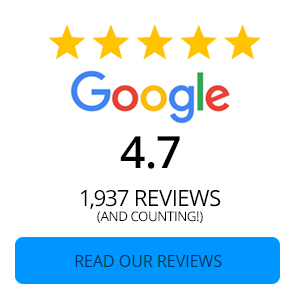These days, when it seems as if there's news of a new data breach affecting consumers' credit cards or financial information almost daily, it's natural to be concerned about the financial security your credit union offers. When you're in the process of choosing a new financial institution, whether for a savings or checking account or for a credit card, you want to ask several questions to learn more about what the company does to keep your money and personal information safe.
Is Your Money Insured?
When you open a savings or checking account at a financial institution, you want the guarantee that your money will be safe, even if the institution has problems or goes out of business. People who have accounts at banks usually have their money insured by the Federal Deposit Insurance Corporation, for up to $250,000.
Credit unions offer a similar type of financial security. Each depositor is insured for up to $250,000 by the National Credit Union Share Insurance Fund, which is overseen by the National Credit Union Administration (NCUA). Most credit unions, about 98 percent, participate in the insurance fund. According to the NCUA, members of credit unions have yet to lose a single penny of the money they deposited into their accounts.
How Does the Institution Contact You If it Needs More Information?
Your new credit union might need to contact you occasionally to let you know about changes in policies or other issues. Some scammers take advantage of this fact and try to get people to reveal their personal details. Knowing how your financial institution will get in touch and what information it will or won't ask for is a critical part of your financial security.
For example, scammers often run "phishing scams," during which they send out emails or make phone calls that appear to be from a legitimate financial institution. In those calls or emails, the scammers pry personal details, such as account numbers, out of unsuspecting customers. When you open an account with a new financial institution, be sure to ask how it gets your personal information and whether it will ever try to contact you by email, phone or text message.
How Secure Are the Institution's e-Services?
Online and mobile financial services are more common than ever. In 2015, the Federal Reserve reported that 52 percent of smartphone owners with bank accounts used mobile banking at some point in the previous 12 months. Security remains a concern for people who have not switched over to mobile or online banking, though.
If you hope to use e-services through your new financial institution, it's a good idea to ask what the institution does to keep your data safe. For example, any information you put in when logging onto online banking should be encrypted and sent over a secure connection.
You can increase your security when banking online by changing your password regularly and by creating strong passwords, which use a mix of letters, numbers and other characters. Only log into your account when you're on a secure network, such as your private home WiFi or your phone provider's data connection.
What Happens If Someone Steals Your Card Information?
If someone manages to steal your credit card or debit card information, it's important to know how your financial institution will handle the situation. Under federal law, you can't be held responsible for more than $50 in unauthorized charges on a credit card, but some credit unions offer $0 fraud protection, which means you pay nothing if someone steals and uses your card.
Ask the financial institution what action it takes if you are a victim of card fraud. Your credit union should work with you to help you close or transfer all compromised cards and accounts and should review the most recent charges with you, to determine which ones were legitimate or not.
If you are the victim of credit card fraud or a phishing scam, Coosa Valley Credit Union has a comprehensive reporting center that will help walk you through the process of getting your financial life back on track. When you are choosing a financial institution, you want one that not only goes out of its way to keep your personal information safe. You also want to find a credit union that springs into action if anything does happen.

